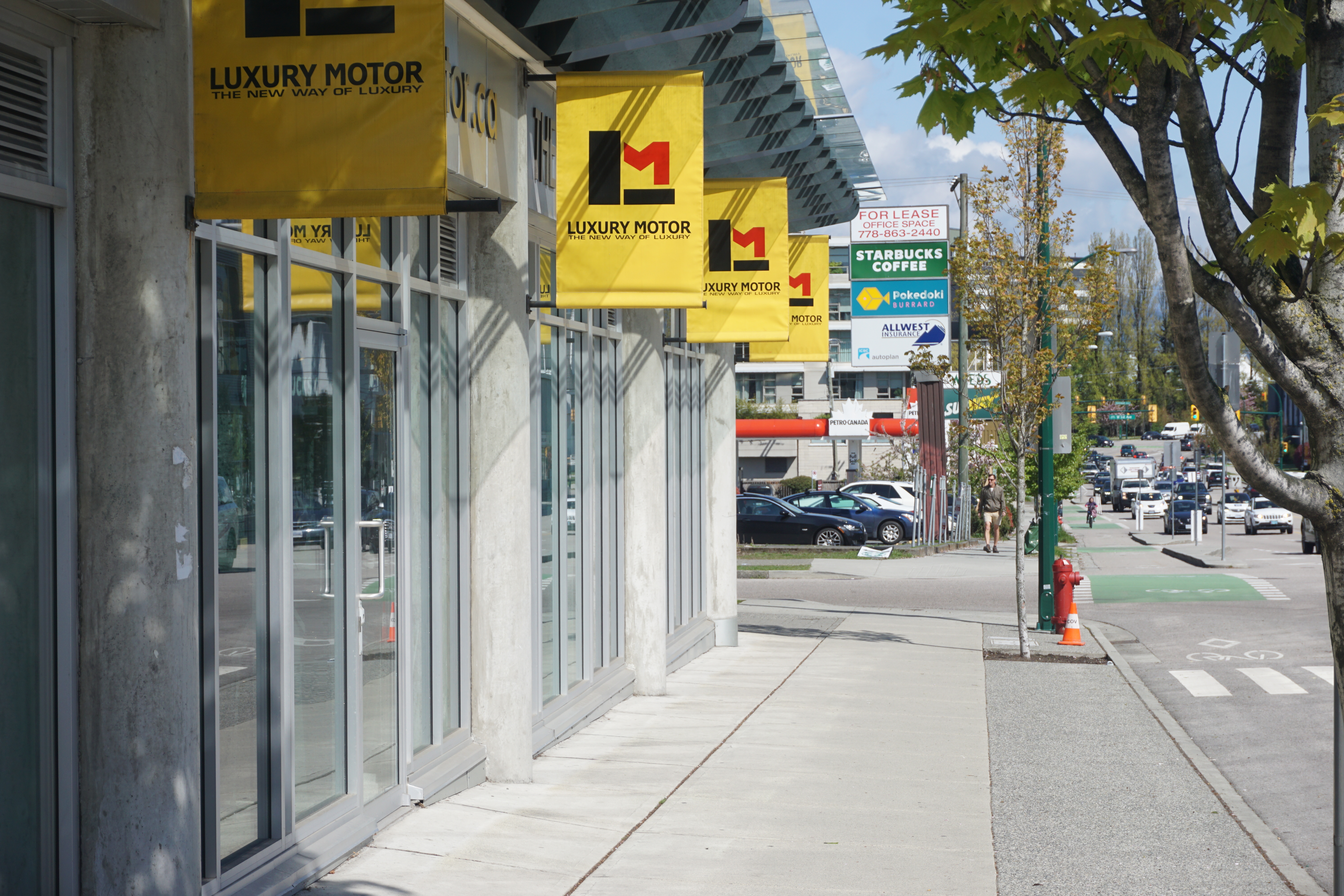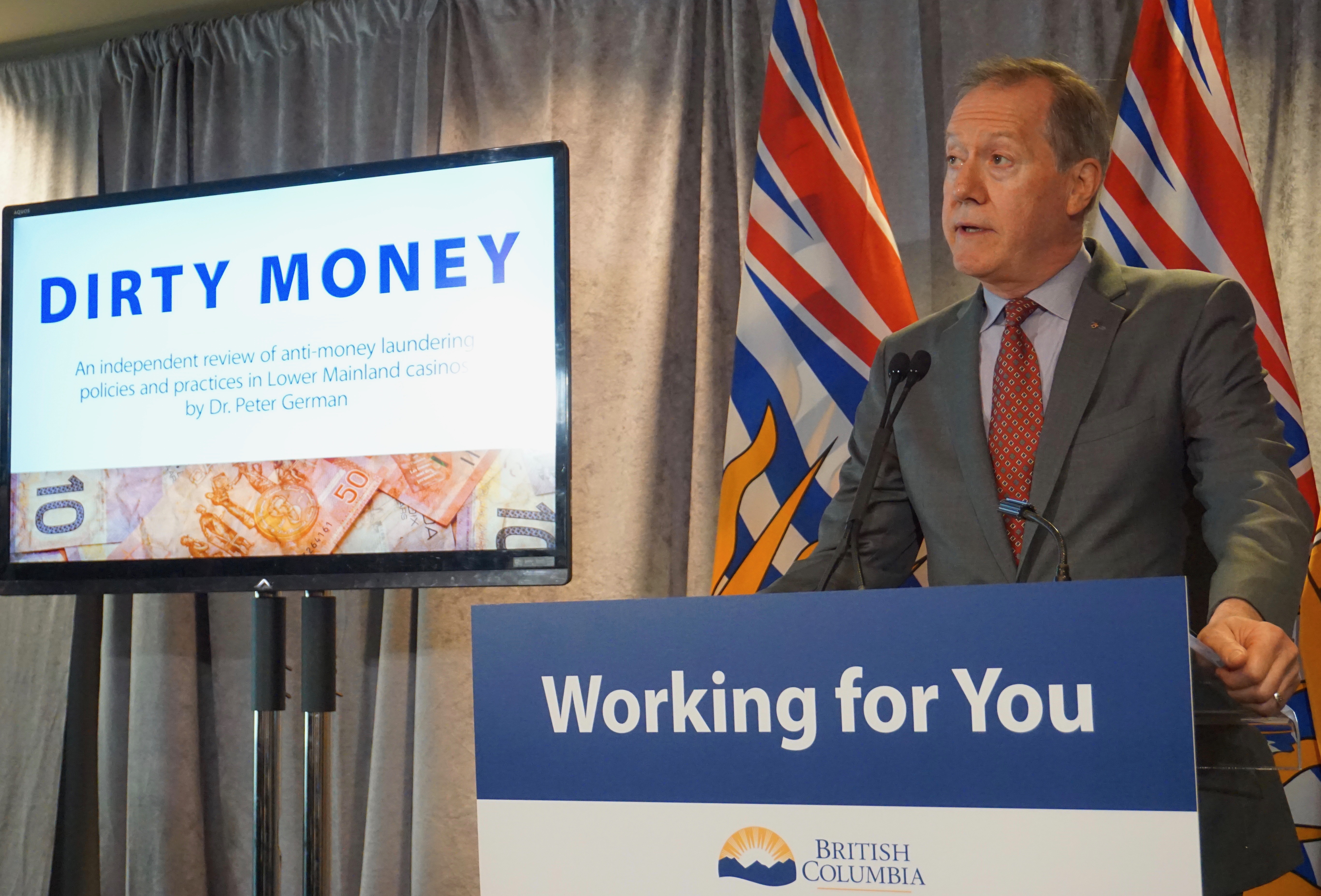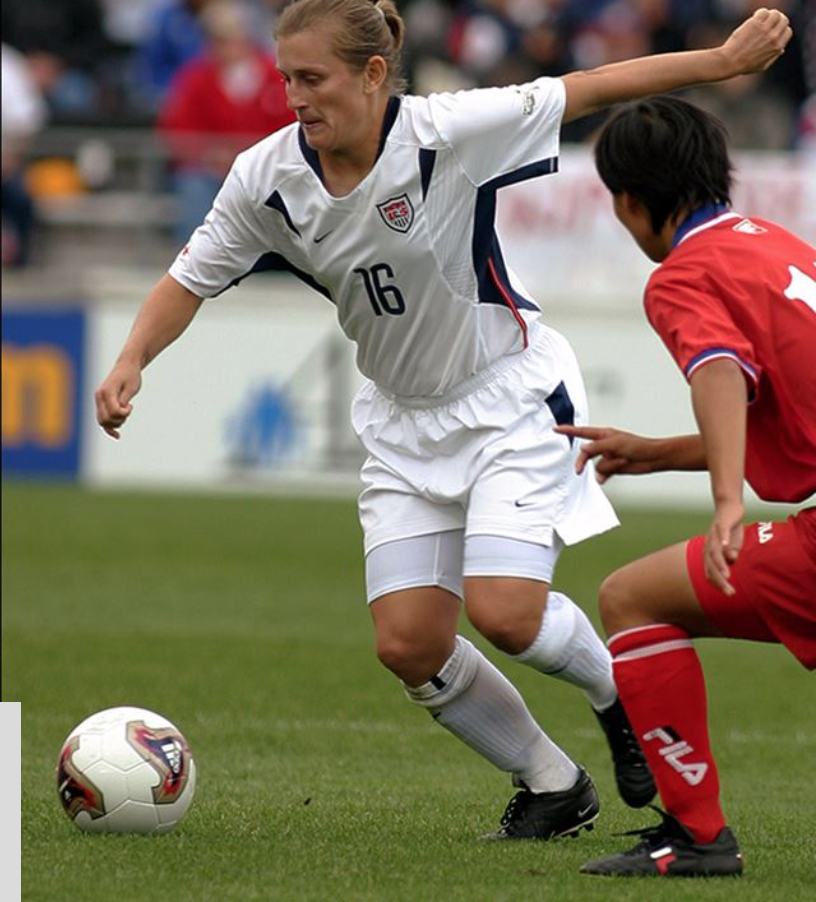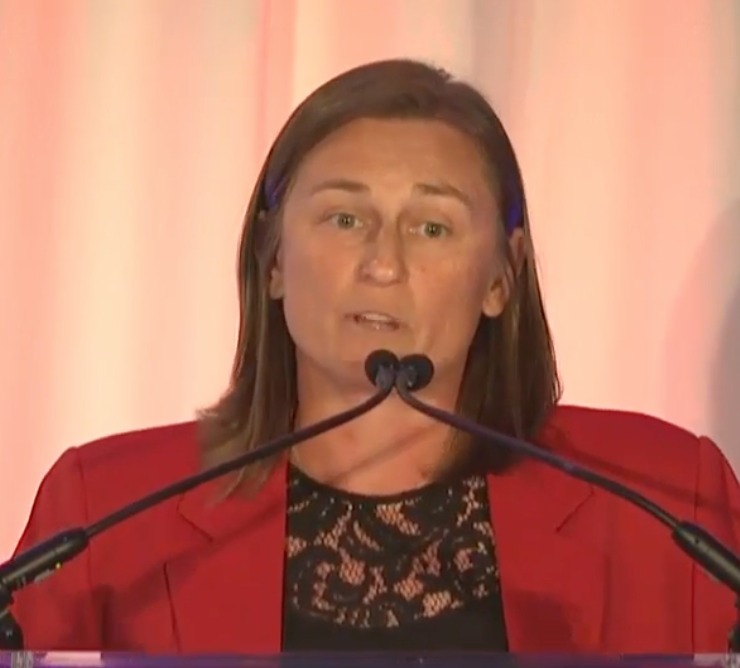Inside the misconducts of the McLachlin Report: “It is hard to understand what was going through Mr. James’s mind”
Bob Mackin
What it was
The “Report on the Special Investigation Into Allegations Against the Clerk and the Sergeant-at-Arms of the Legislative Assembly of British Columbia” was officially a confidential fact-finding process to determine whether the suspended-with-pay-since Nov. 20 Clerk of the Legislature Craig James or Sergeant-at-Arms Gary Lenz engaged in misconduct in the course of their employment as permanent officers of the Legislative Assembly. Independent of, and unrelated to, any police investigation.
What it wasn’t
Not a legal investigation, nor was it to draw legal conclusions or to provide legal opinions.
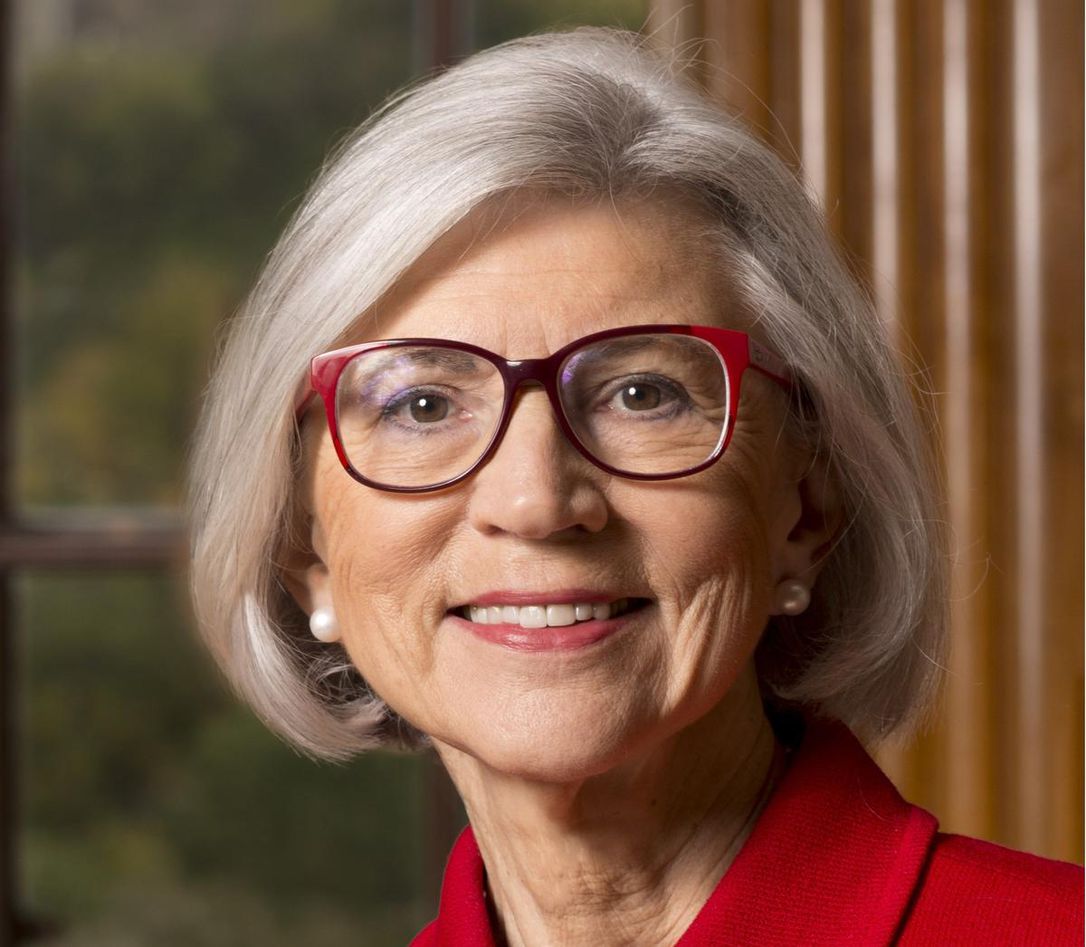
Beverley McLachlin (Jean-Marc Carisse)
Who is Beverley McLachlin
McLachlin retired in December 2017 from the Supreme Court, where she had been chief justice since January 2000. The first woman to hold the position.
The former associate professor of law at the University of B.C. began her career as a bencher in 1981, first with the Vancouver County Court and then with the B.C. Supreme Court, where she became chief justice in September 1988. McLachlin joined the highest court in the land in April 1989.
In 2018, she became a non-permanent member of the Court of Final Appeal in Hong Kong. She is also a member arbitrator with the Arbitration Place, which offers arbitrators and venues in Toronto and Ottawa for arbitration, mediation and out-of-court examination.
Process
McLachlin was appointed by the Legislature on March 7, with a May 3 deadline for her report. She submitted it a day early.
After their closed-door testimony, transcripts were provided to James and Lenz so that they could challenge any statements with which they took issue. McLachlin also interviewed current and former employees and officers of the Legislative Assembly and members of the house. None were named. She also interviewed Speaker Darryl Plecas, who blew the whistle on corruption and waste in the B.C. Legislature.
The report was redacted. The Legislature voted May 16 to protect the transcripts and identity of witnesses under parliamentary privilege.

Gary Lenz (left), ex-speaker Linda Reid and Craig James (Commonwealth Parliamentary Association)
McLachlin compared each of the dozen questioned activities of James and Lenz, organized in five categories, with the applicable rule, practice or policy, and she considered whether it been consistently applied.
Ultimately, she sought to answer whether the questioned activity constituted a breach of the applicable rule, practice or policy — if one existed. Based on the evidence before her, she ruled that James committed misconduct in four of the five categories, while Lenz was cleared of misconduct.
Lame committee
Before she got to the heart of the matter, McLachlin had harsh words for the Legislative Assembly, not dissimilar to Auditor General John Doyle’s conclusions in 2012.
She cited “weaknesses in the administrative structure,” where the speaker and LAMC historically allowed the clerk to bear responsibility for stewardship of Legislature finances.
“The Legislative Assembly Management Committee met infrequently during the period in question, particularly during the 180 days each year that the House was in recess. The lines of authority between the LAMC and the speaker, and between the speaker and the clerk and sergeant at arms, appear to have been unclear in many people’s minds, including their own.”
McLachlin criticized Plecas for viewing matters that concerned him “through the lens of a police investigation and criminal prosecution, rather than the lens of an administrator.”
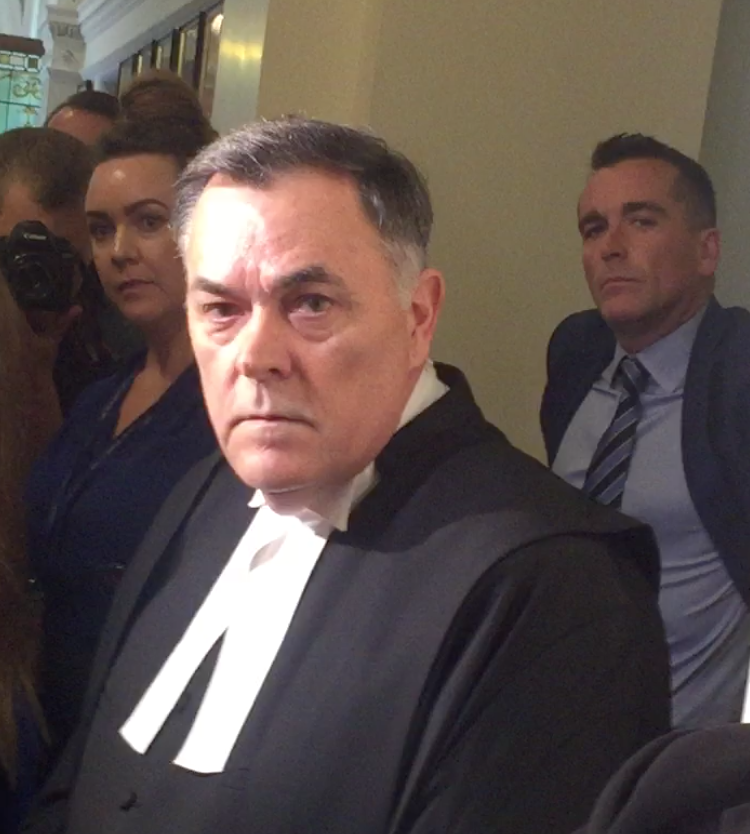
Speaker Darryl Plecas (left) and chief of staff Alan Mullen (Mackin)
In a scrum with the media, Plecas, a nationally renowned criminology professor, was unapologetic. Those that confronted James and Lenz before him failed in correcting their behaviour.
In several cases, those that questioned James and Lenz’s authority were targeted by James, Lenz or their allies. Within a year of Doyle’s scathing report, for instance, his tenure was shortened by the BC Liberal government and ultimately ended.
“The events leading up to Nov. 20, 2018 and the subsequent release of the January Report [by Plecas] reflect the weaknesses in the reporting structure of the Legislative Assembly. When there this a lack of clarity about who is in charge of what, power seeps through the cracks and vigilant oversight is compromised.”
Suits and cases
The first misconduct was relatively easy for McLachlin. She concluded that the suits and luggage James bought were for personal use and James broke rules by being reimbursed.
James spent $2,150 on suits during separate trips to tailor Ede and Ravenscroft in London. James also spent $2,135.87 on various pieces of luggage.
“Mr. James provided no explanation for why, if the suits were required for Legislative Assembly business, suitable suits could not have been purchased in Canada at a lower price.”
The suits that James bought were not identical and were basic business suits. One of the suits was navy and the other was grey or charcoal, neither would be appropriate to wear under the black gowns in the House.
Stuffing pockets
James crafted a retirement allowance program in February 2012 and essentially paid himself $257,988. McLachlin could not accept James’s explanation and called the significant personal benefit a “mystery” and “without any evidenced justification.”
“On the evidence before me, I conclude that the payment of $257,988 to Mr. James in February 2012 lacks any legal basis.”
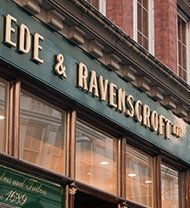
Exclusive London tailor shop preferred by James and Lenz.
“Whether by participating in the decision to award payments to individuals, including himself, without proper justification, or by deliberately standing at arm’s length and turning a blind eye toward whether Legislative Assembly funds were managed appropriately.”
James sought to enrich himself even more, through an insurance scheme that Plecas rejected.
“Mr. James’s primary focus was not the appropriate management of Legislative Assembly resources, but his personal desire for life insurance paid for by the Assembly.”
James concocted a scheme whereby he would receive $370,315 during the 12 months after his resignation, when that time would come.
McLachlin found James attempted, with an April 9, 2018 letter, to “secure a lucrative benefit outside of proper channels and inconsistent with established practice. I conclude that this constitutes misconduct.”
James also wanted the Legislature to pay his estate three times his annual salary, in the event that he died while clerk. The life insurance scheme would have paid his family $900,000.
“Mr. James did not turn his mind to what is best for the Legislative Assembly, as he was duty bound to do. As soon as he began to draft the letter, he had an obligation to assess the validity of the plan critically with an eye to the effective management of the Legislative Assembly. Mr. James did not consult with others, and he provided to another example of efforts he took to assess the plan. Therefore, his conduct fell well short of his admitted responsibilities as clerk.”
Booze for Barisoff
The truckload of beer, wine and spirits that James delivered to ex-speaker Bill Barisoff, and collected only $370 in return, was another misconduct.
James knowingly removed a significant quantity of alcohol from the Legislative precinct, without accounting for what he took or providing verifiable payment for it.
Split decision
McLachlin didn’t find the purchase of the infamous $13,000 wood splitter and trailer combo as misconduct, but what happened after it was bought was misconduct. Or, as she put it, the improper removal and use of the asset.
“Notwithstanding email communications provided to me that confirm that Mr. James played a role in actually choosing the specific piece of equipment in question once the request was approved, there is insufficient evidence to conclude that Mr. James engineered the purchase for a personal purpose.”
“Mr. James kept the wood splitter and trailer in his custody until November 2018, almost a year after he brought them home. The critical question is: why?
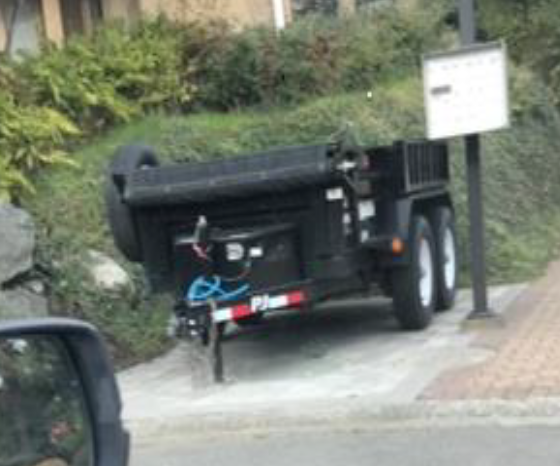
The wood splitter trailer at Craig James’s house in Saanich (Speaker’s Office)
“Mr. James says he kept the wood splitter and trailer because there was no suitable place to store them on the Legislative precinct. I reject this explanation; indeed it borders on nonsensical.”
McLachlin saved her choicest words for James’s misconduct on the wood splitter. James said he used it maybe three times and a broken mirror found in the trailer was from his house, after renovations in a main floor bathroom.
“As has been sensibly observed by others, why would Mr. James have endorsed the purchase of this equipment if there was not room on the Legislative precinct to store it? Had the anticipated emergency occurred, the equipment would have been useless unless stored at the Legislative precinct.”
“It is hard to understand what was going through Mr. James’s mind. Was he generously protecting Legislative Assembly property at his own expense, or did he somehow think he was entitled to retain the equipment?” she wrote. “The first is neither cohesive nor credible enough to stand against the array of contrary evidence. The second explanation is clearly inappropriate.”
“I conclude that Mr. James retention and use of the wood splitter and trailer violated Legislative Assembly policy and constituted misconduct.”
Plot twist
An 11th hour settlement was negotiated between James’s lawyers at Fasken and labour lawyer Marcia McNeil, representing the Legislative Assembly. James suddenly retired, months after claiming he did no wrong and that he wanted his job back. “I have had enough,” according to a prepared James statement released after Government house leader Mike Farnworth tabled the report. “My family has been deeply hurt and continues to suffer humiliation.”
theBreaker.news was first to report that the agreement contains a non-disparaging clause and a non-financial clause. James’s salary is ended, and he won’t be asked to repay the treasury for the cost of all the misconduct found by McLachlin.
Craig James’s words of May 16 were in stark contrast with those he spoke at the Nov. 26 news conference.
“The healing can only begin with my return to work… I can think of nothing that I have done that would disqualify me from carrying on with my office while this investigation is completed.”
CTV reporter St. John Alexander asked: “What do you think it could have been [that sparked the suspension]?”
“I have no idea,” James said.
Asked Alexander: “There was no money moved that shouldn’t have been moved?”
“None at all,” James replied. “I have established processes in the Legislative Assembly that are essentially bulletproof.”
What’s next
The Auditor General continues her work and a workplace review is coming.
The RCMP investigation, which involves special prosecutors David Butcher and Brock Martland, is ongoing.
Click here to read the McLachlin report.
Support theBreaker.news for as low as $2 a month on Patreon. Find out how. Click here.
Bob Mackin What it was The "Report on the






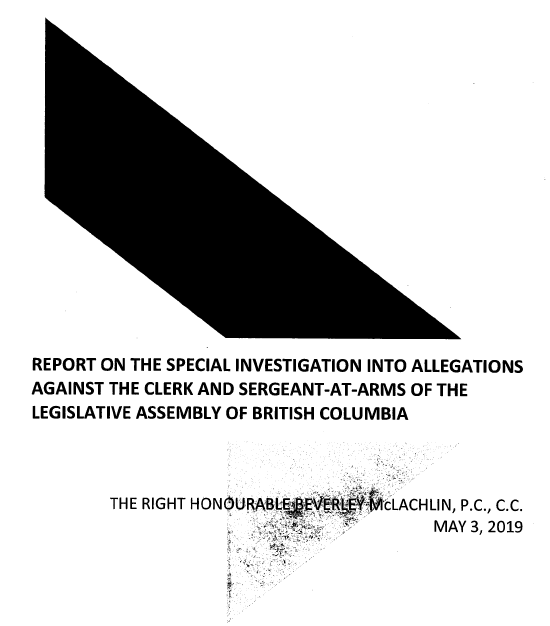
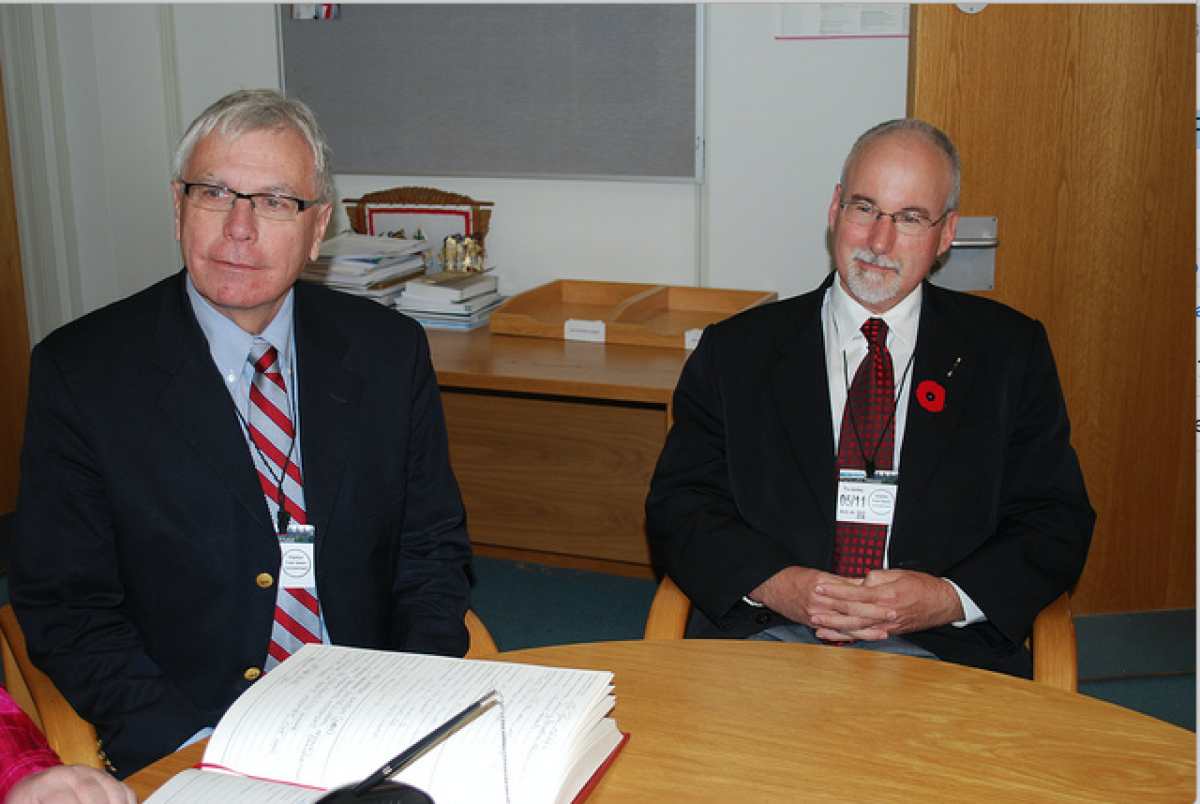
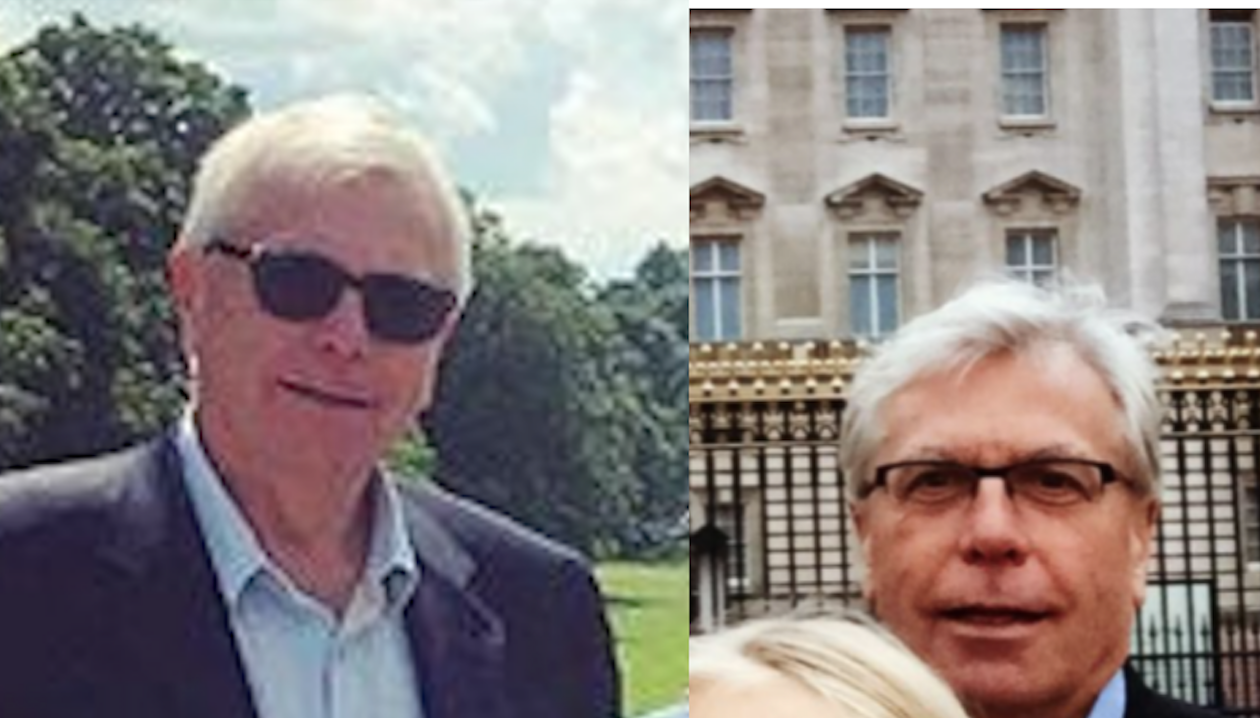
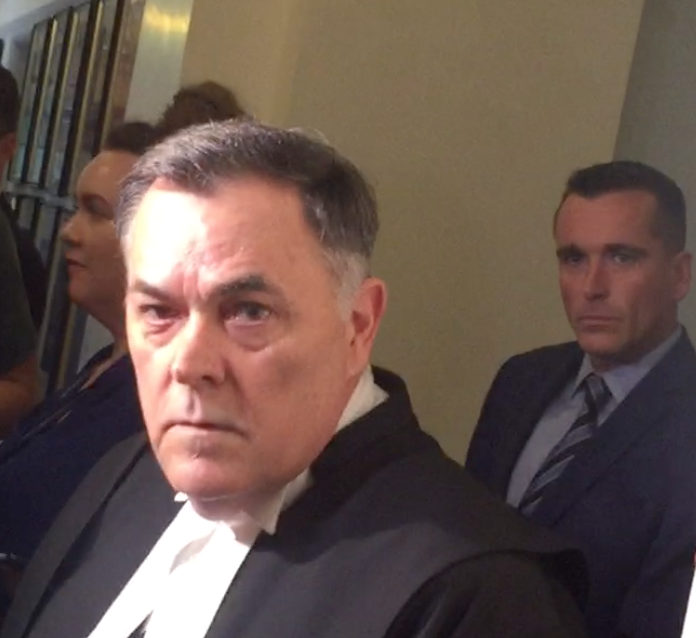
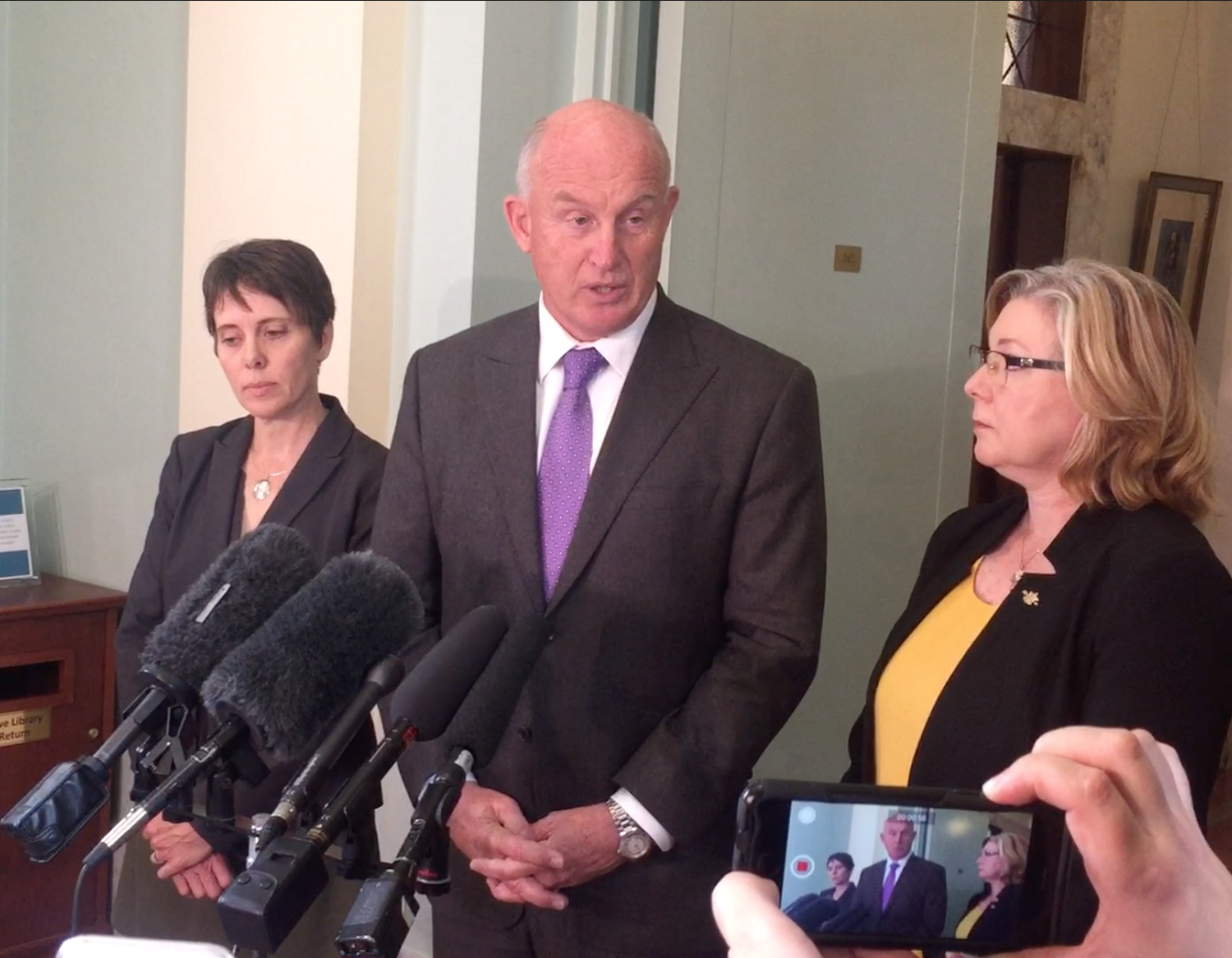
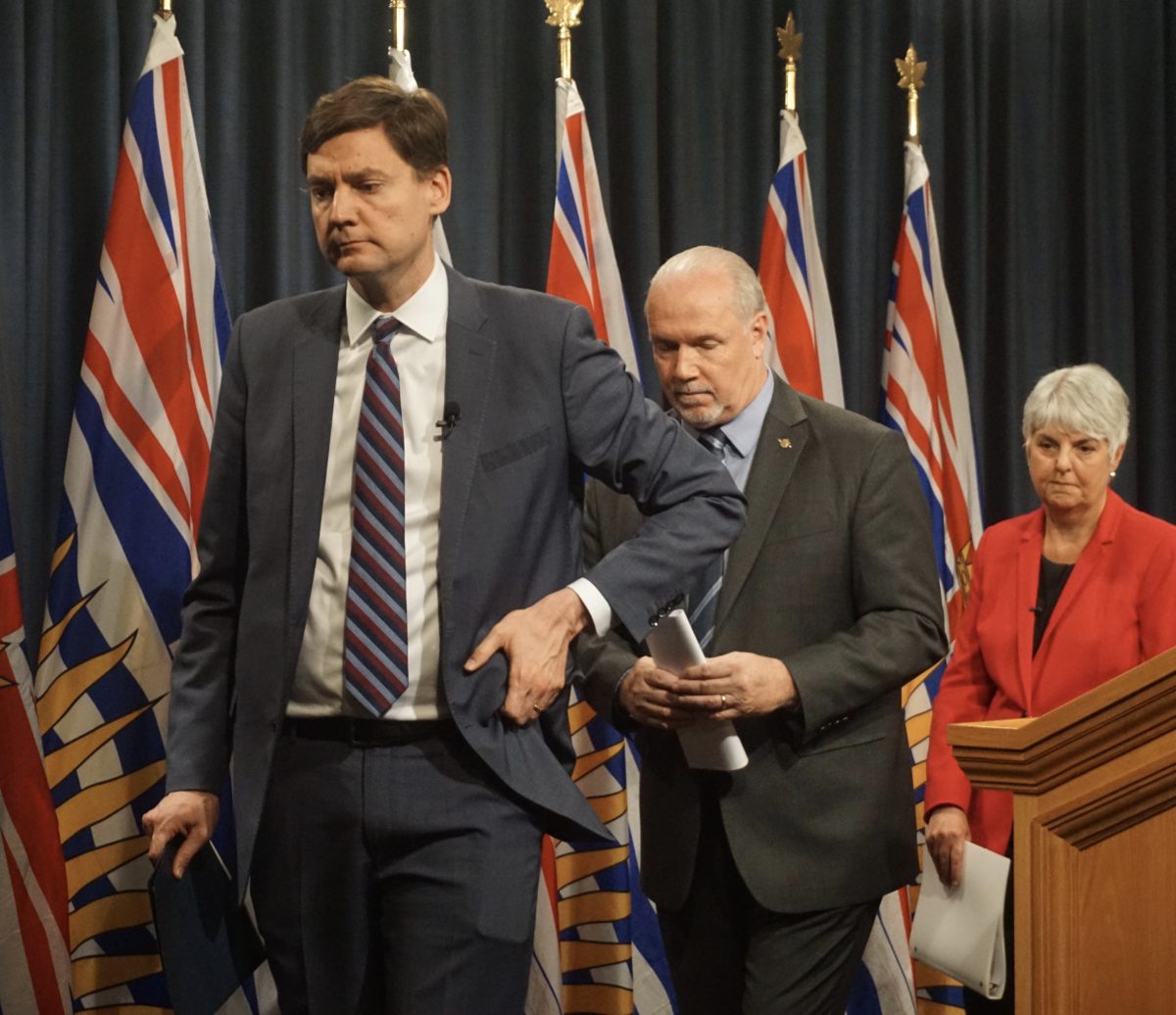
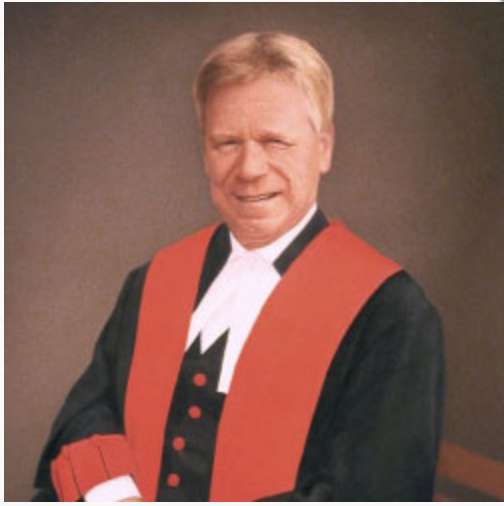
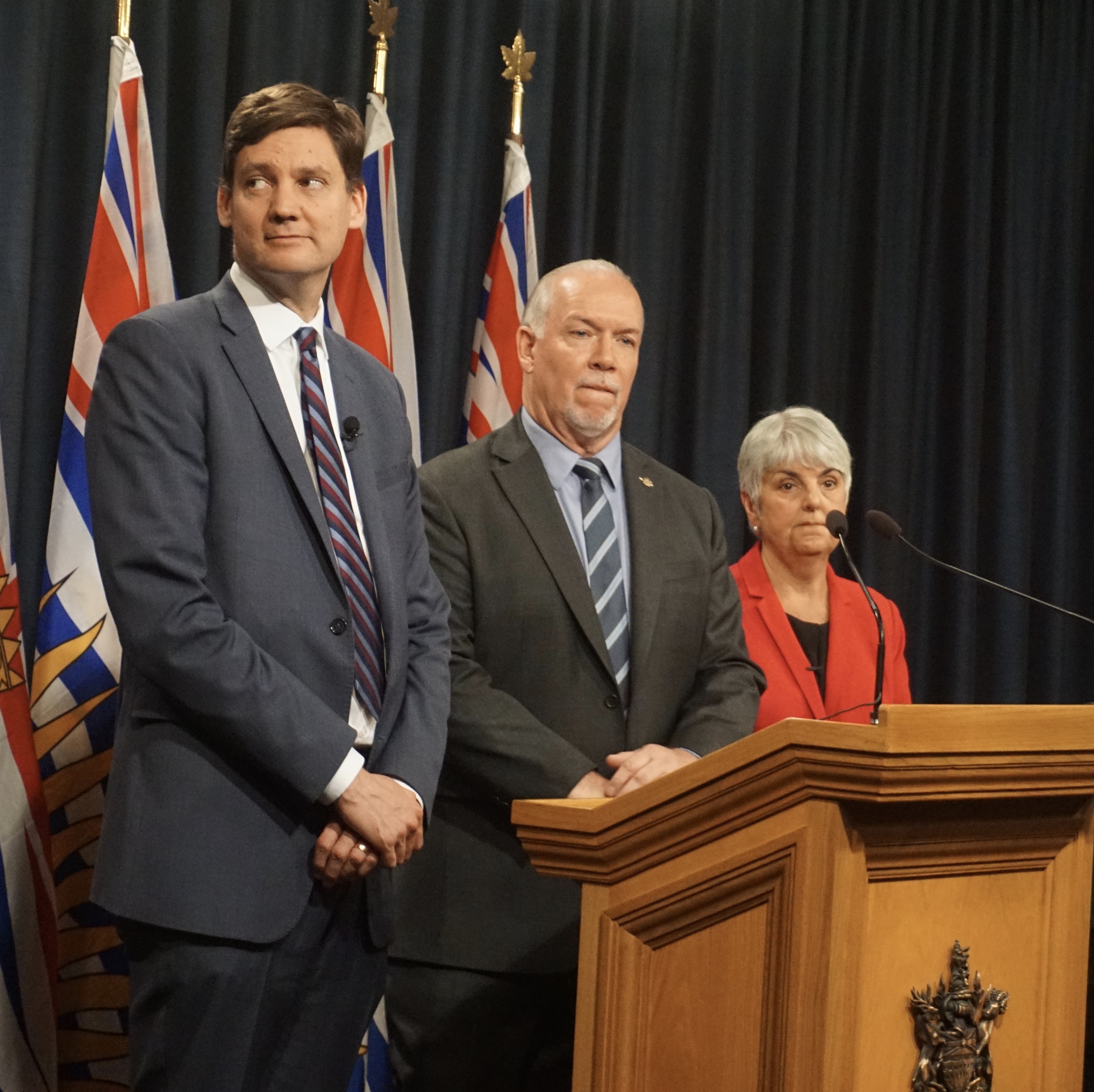

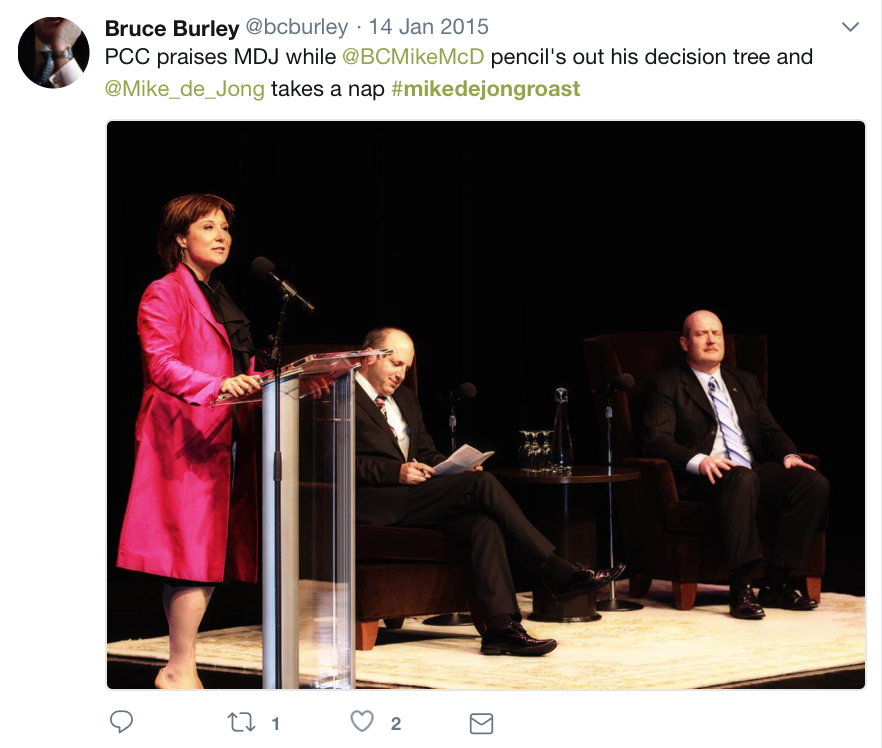

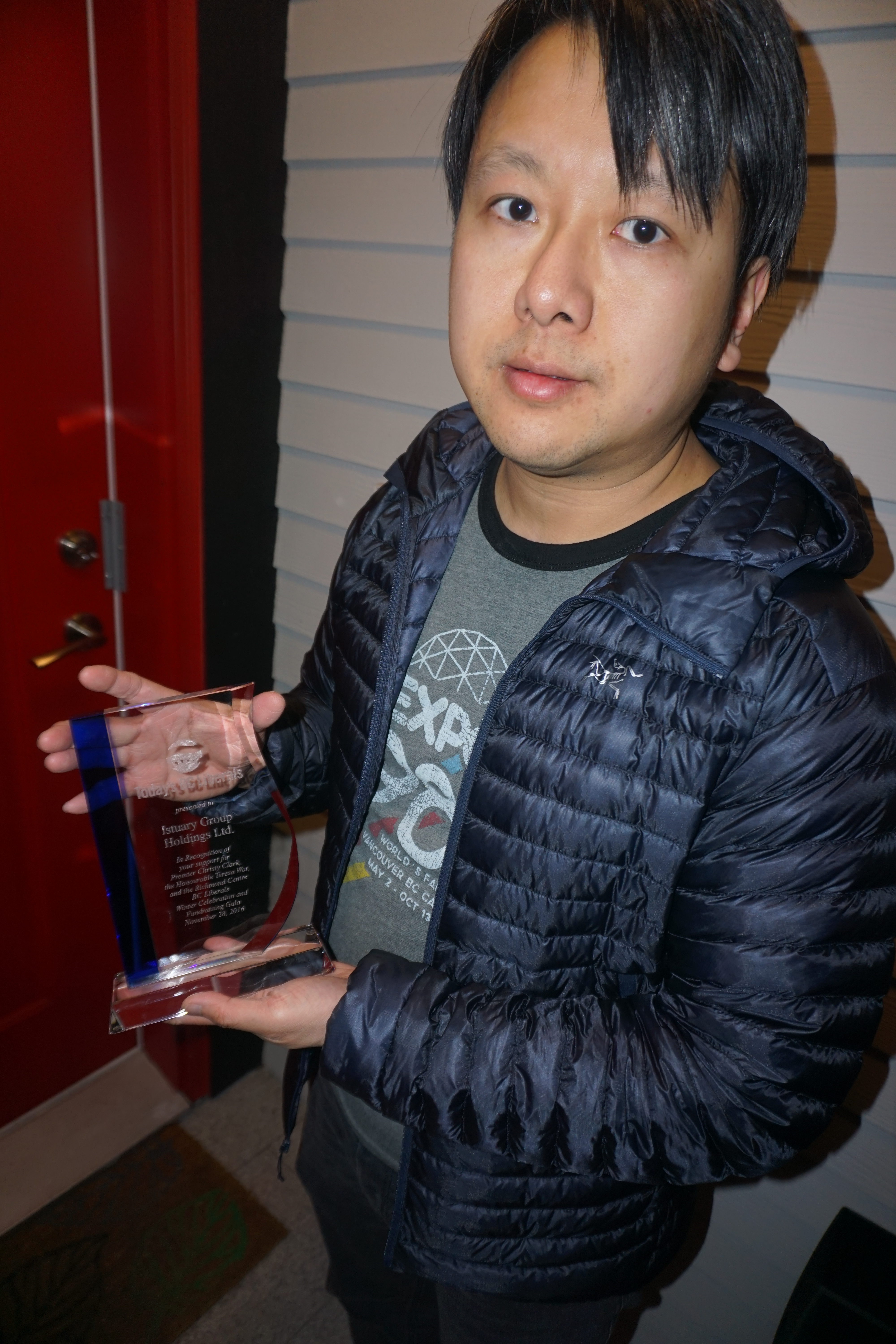
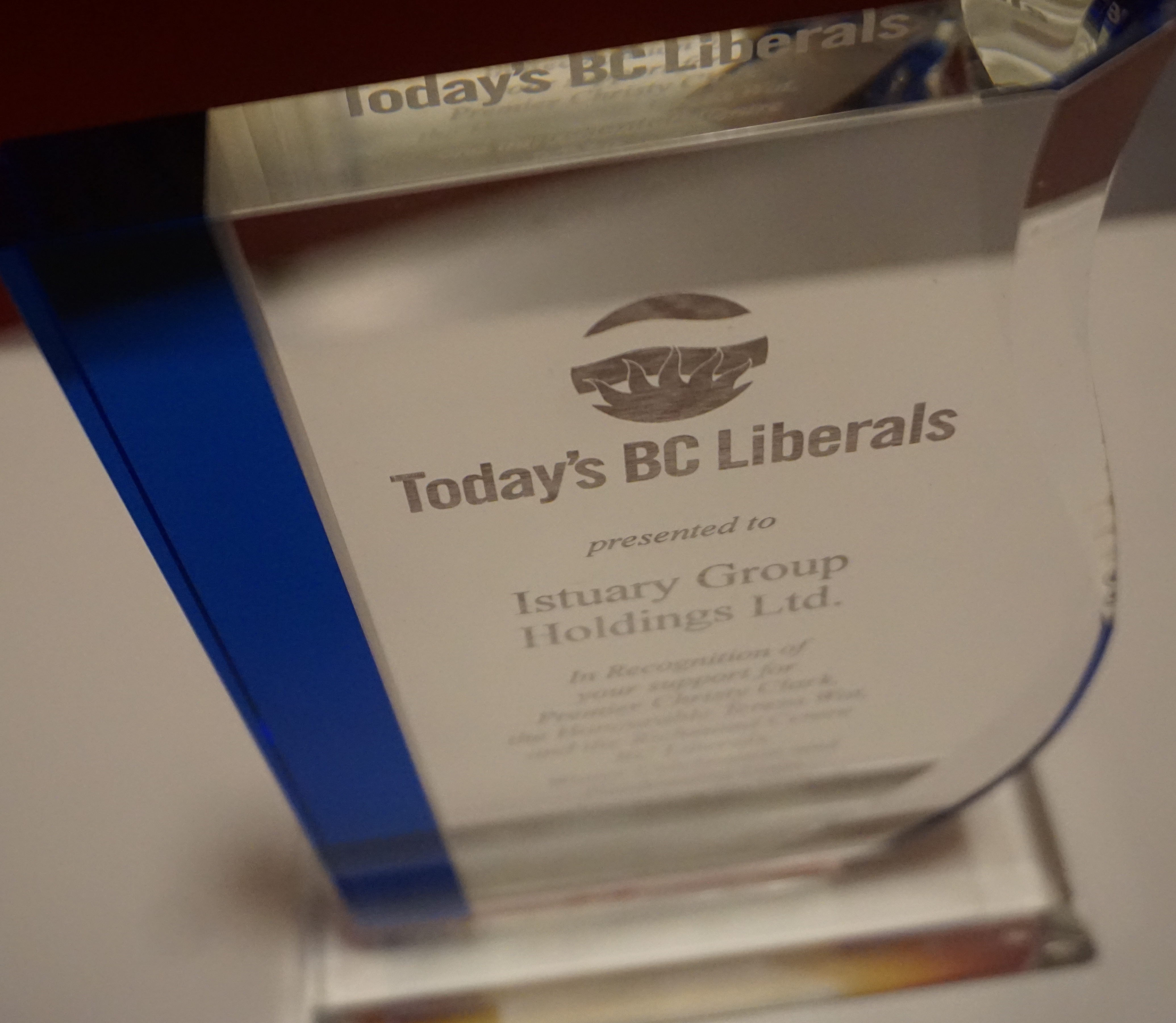
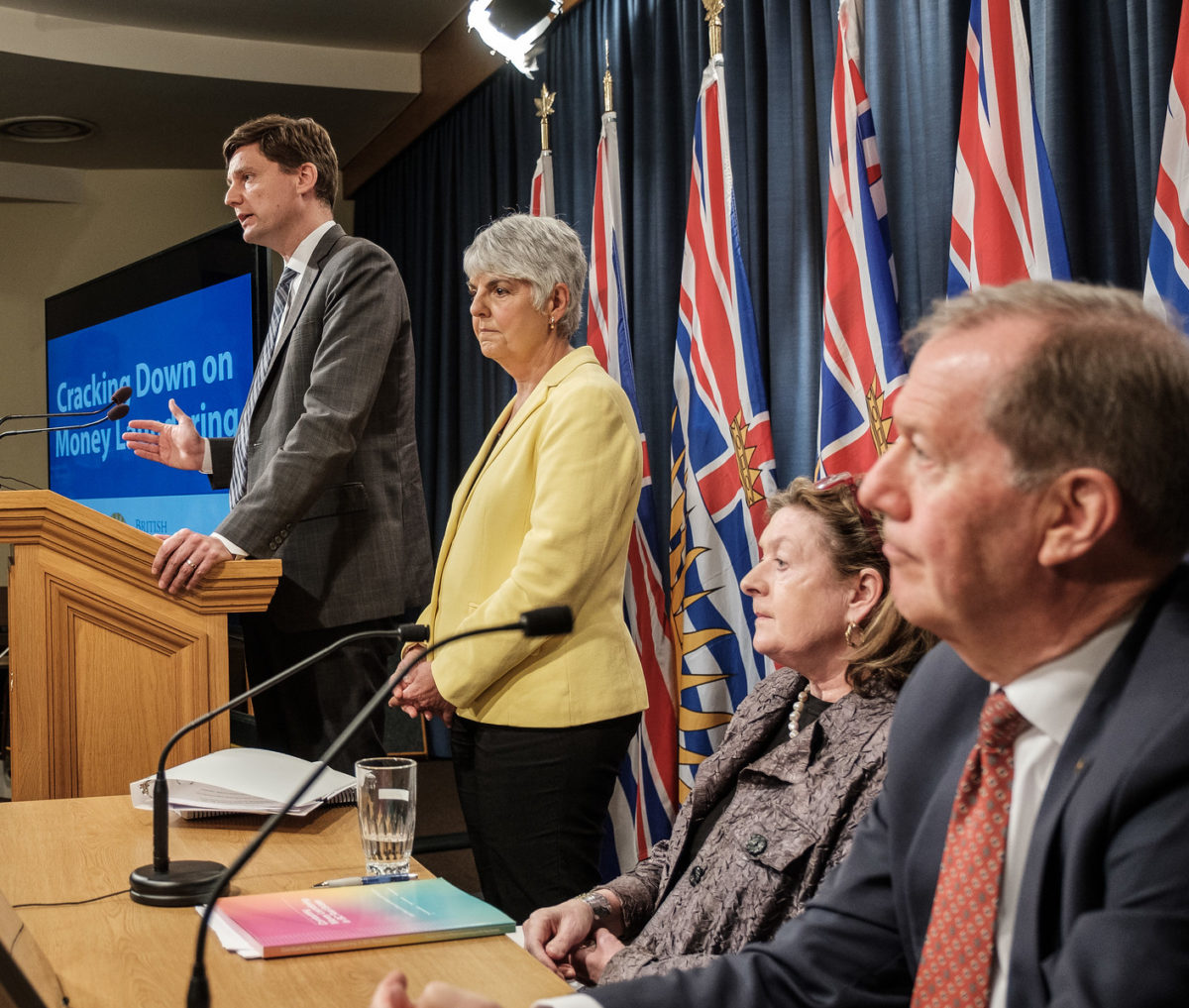

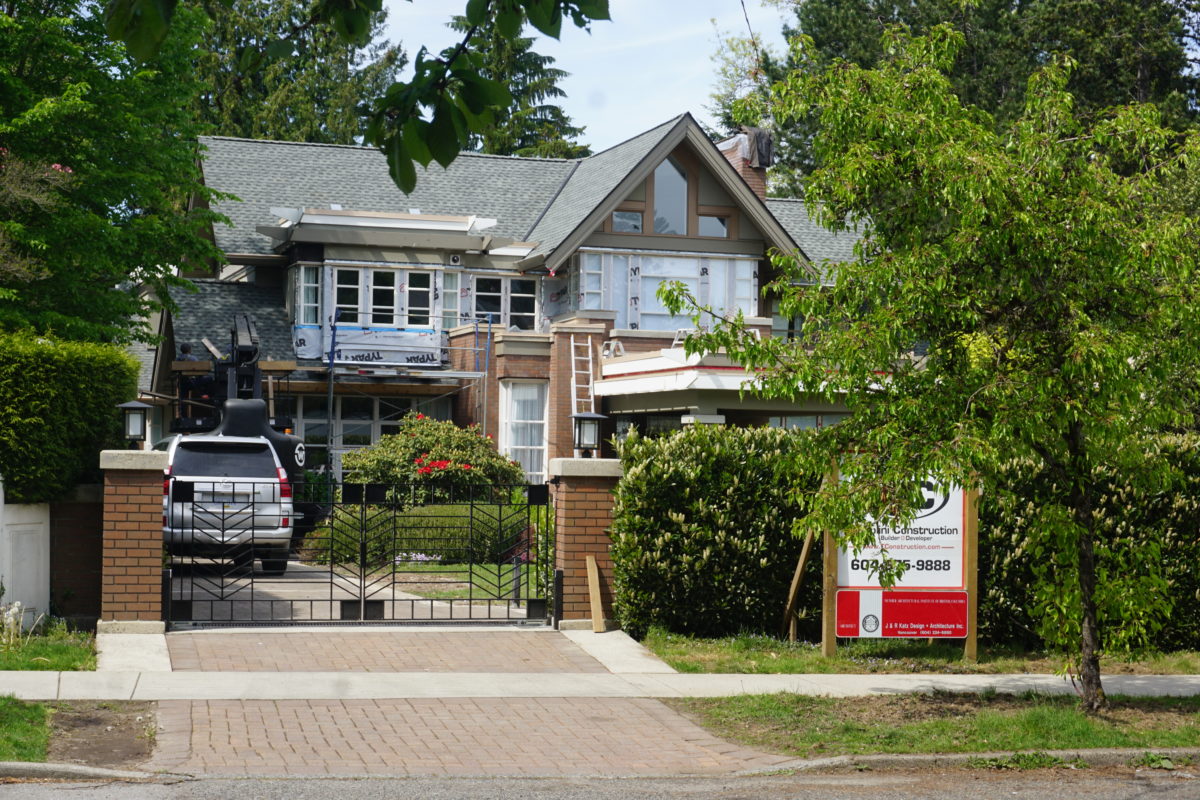

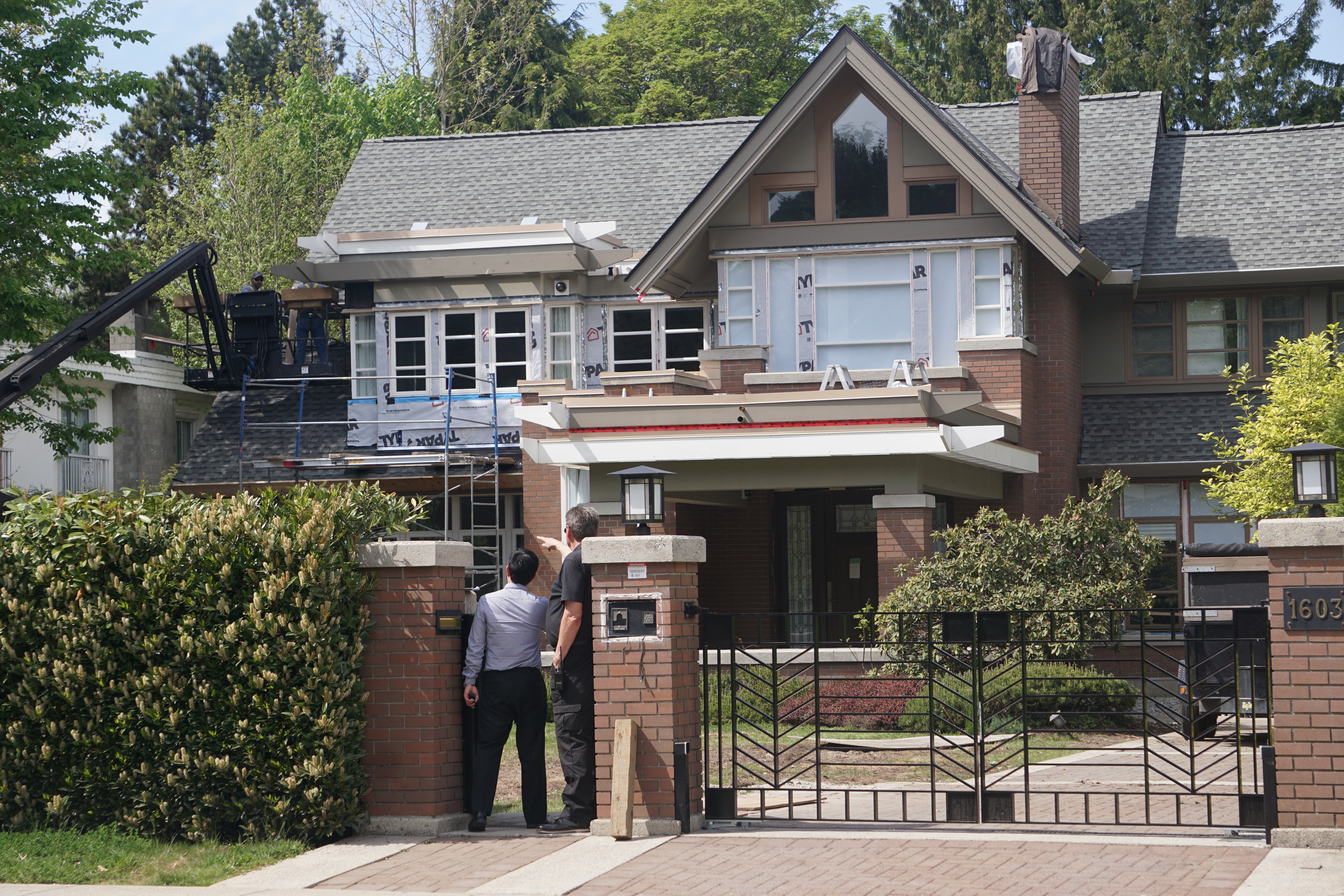
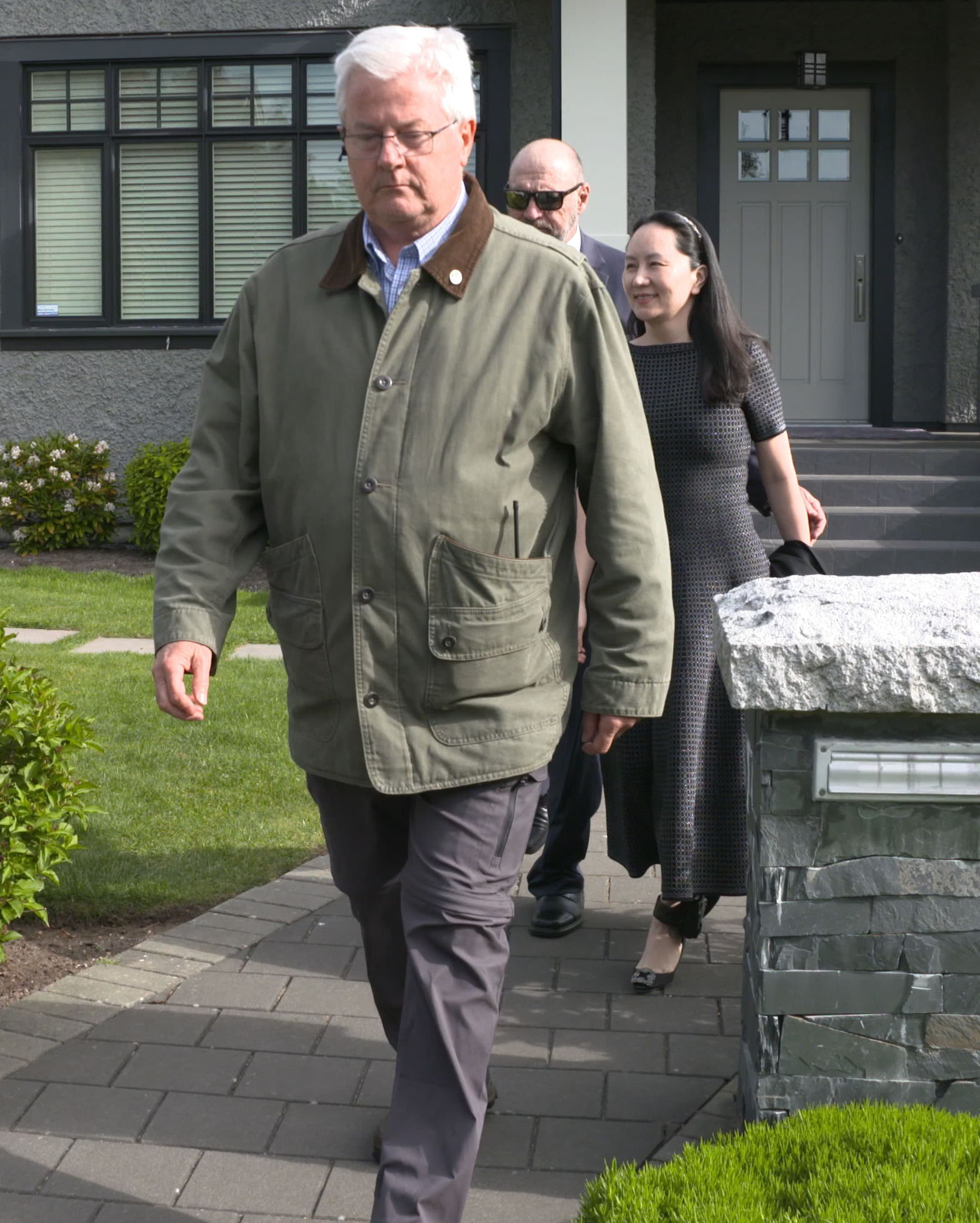
 Meng wears a GPS monitor on her left ankle and is restricted to traveling within City of Vancouver and parts of Richmond and the North Shore. She cannot go near the airport. She is under 24-hour watch of Lions Gate and her next court date is Sept. 23 for a hearing where her four lawyers and one for the Attorney General of Canada will argue over evidence disclosure. No date has been set for the actual extradition hearing, but her lawyers want the extradition case stayed before it can be heard. They accuse Canadian police and border guards and President Donald Trump of abuse of process.
Meng wears a GPS monitor on her left ankle and is restricted to traveling within City of Vancouver and parts of Richmond and the North Shore. She cannot go near the airport. She is under 24-hour watch of Lions Gate and her next court date is Sept. 23 for a hearing where her four lawyers and one for the Attorney General of Canada will argue over evidence disclosure. No date has been set for the actual extradition hearing, but her lawyers want the extradition case stayed before it can be heard. They accuse Canadian police and border guards and President Donald Trump of abuse of process. 





